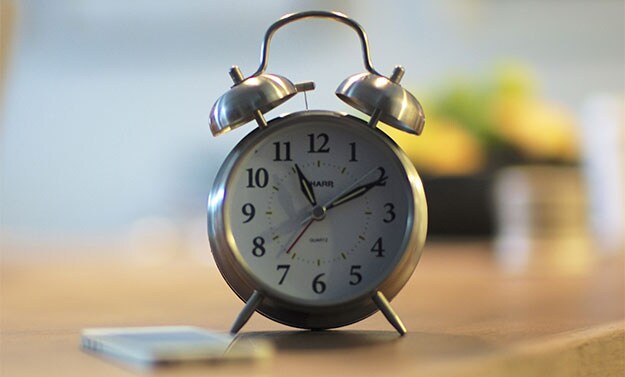
Delayed School Start Time Improves Health And Academic Performance: Study
New Delhi:
A new study conducted by an English state school has concluded that delayed school start time may have major health benefits for teenagers. The benefits may be extended to not just academic performance but also to mental and physical health. The long-term study found that when students attended school at 10:00 am instead of 8:30 am, the rate of falling ill decreased by half over a period of two years. The grades also improved for the students significantly in this period.
Dr. Paul Kelley of the Open University, who is the lead author of this new paper said, "The big issue about school times is health, it starts with physical illness, and then there's mental illness, and last but not least academic performance."
He said that mental and physical health condition s such as obesity and depression have been linked with early school times and lack of sleep.
Dr. Guy Meadows, who is co-founder of The Sleep School and was not involved in the study said that in recent years interest has grown in this aspect and there have been many researches which show similar results around the world.
Earlier in 2017, the American Academy of Sleep Medicine had also issued a statement saying that a delay in school start time could positively impact a student's academic performance and also improve their health and safety.
The study by Dr Kelley goes a step further and suggests that in order to reap the full benefits, schools need to start considerably later.
As reported in The Independent, previous work by Dr Kelley and his collaborators with university students has suggested that by the age of 18, academic performance would be further optimised if teaching in colleges began as late as 11am or even noon.
"And that's also going to be relevant for work, because not everyone aged 18 and 19 is in university," Dr Kelley added.
Teenagers have a different sleep pattern than adults and as per a TED talk given by neuroscientist Professor Russell Foster of the University of Oxford, need at least nine hours of sleep for full brain function.
Puberty affects the circadian rhythms of individuals to a large extent; particularly due to the sleep governing melatonin hormone. The circadian rhythm delays by couple of hours due to delay in the melatonin secretion from the pineal gland thus affecting the sleeping hour of the individual. This is why, teenagers often sleep late than their parents.
However, circadian rhythm varies for each individual. Defined as 'Chronotypes', every distinct individual has a definite pattern for sleeping hours within 24 hours time frame: eveningness and morningness are the two extremes. Hence there are 'larks' who rise early, and 'owls' who stay awake till late night.
Dr. Guy Meadows said that finally the focus is shifting toward sleep patterns with workplaces offering more flexible hours to the employees.
"The world is recognising that individual circadian timing is important," he said.
Dr. Kelley said that it was vital that parents and students identified that there was a problem and encouraged schools to delay school start time.
Click here for more Education News
Dr. Paul Kelley of the Open University, who is the lead author of this new paper said, "The big issue about school times is health, it starts with physical illness, and then there's mental illness, and last but not least academic performance."
He said that mental and physical health condition s such as obesity and depression have been linked with early school times and lack of sleep.
Dr. Guy Meadows, who is co-founder of The Sleep School and was not involved in the study said that in recent years interest has grown in this aspect and there have been many researches which show similar results around the world.
Earlier in 2017, the American Academy of Sleep Medicine had also issued a statement saying that a delay in school start time could positively impact a student's academic performance and also improve their health and safety.
The study by Dr Kelley goes a step further and suggests that in order to reap the full benefits, schools need to start considerably later.
As reported in The Independent, previous work by Dr Kelley and his collaborators with university students has suggested that by the age of 18, academic performance would be further optimised if teaching in colleges began as late as 11am or even noon.
"And that's also going to be relevant for work, because not everyone aged 18 and 19 is in university," Dr Kelley added.
Teenagers have a different sleep pattern than adults and as per a TED talk given by neuroscientist Professor Russell Foster of the University of Oxford, need at least nine hours of sleep for full brain function.
Puberty affects the circadian rhythms of individuals to a large extent; particularly due to the sleep governing melatonin hormone. The circadian rhythm delays by couple of hours due to delay in the melatonin secretion from the pineal gland thus affecting the sleeping hour of the individual. This is why, teenagers often sleep late than their parents.
However, circadian rhythm varies for each individual. Defined as 'Chronotypes', every distinct individual has a definite pattern for sleeping hours within 24 hours time frame: eveningness and morningness are the two extremes. Hence there are 'larks' who rise early, and 'owls' who stay awake till late night.
Dr. Guy Meadows said that finally the focus is shifting toward sleep patterns with workplaces offering more flexible hours to the employees.
"The world is recognising that individual circadian timing is important," he said.
Dr. Kelley said that it was vital that parents and students identified that there was a problem and encouraged schools to delay school start time.
Click here for more Education News

